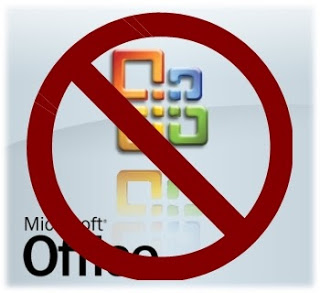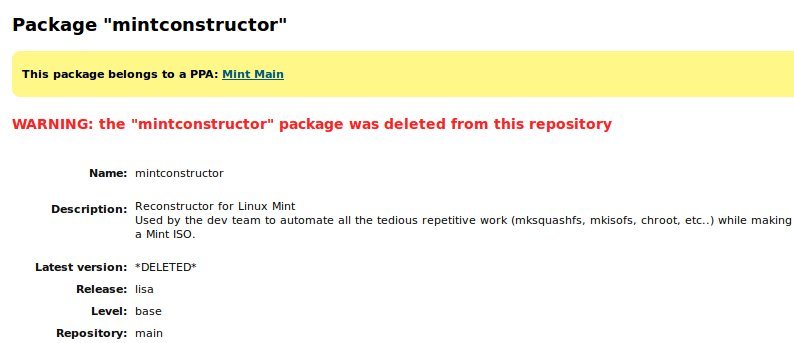There are no profound revelations here…at least not in this post. It just serves to reinforce something we already know.
When we go into a home to give a child a computer, one of the first things we do is explain to them that we have installed Linux on their computer, not Windows. This announcement is usually met with blank stares or shrugs. They don’t care. They are just jacked that they are finally entering into the tech age at home.
 Most times, any concern expressed is coming from the parent. Of course it would be. Their minds are locked into doing things one way.
Most times, any concern expressed is coming from the parent. Of course it would be. Their minds are locked into doing things one way.
We often address this concern quickly. Once we boot the computer, the machine becomes the realm of the child and aside from parental controls, the machine belongs to the child. We explain that explicitly. If the child had any qualms about what Linux is, they evaporate once we start the computer and click the applications menu.
Our custom distro, based on Linux Mint 17 KDE LTS, is a playground completely filled with learning opportunities. Many of the applications were taken from standard Linux educational apps available from the regular repositories. The 3.3 gig ISO file produces a live cd/install disk which not only provides hours of entertainment, it includes educational software that meets most any academic need the child will encounter. Many of our kids, however, are at the age where they like to play simple games. We’ve provided an abundant environment for that.
Ken Starks is the founder of the Helios Project and Reglue, which for 20 years provided refurbished older computers running Linux to disadvantaged school kids, as well as providing digital help for senior citizens, in the Austin, Texas area. He was a columnist for FOSS Force from 2013-2016, and remains part of our family. Follow him on Twitter: @Reglue



 It also seems to fit with one of the underlying philosophies of the distro. Mint is famous for being a desktop that anybody can use. Updates on the dash is a concept which a new-to-Linux Windows’ user can understand, maybe even without having to go to the forums for help — and a piece of cake for experienced free software users. In my case, the only problem I had is that I misunderstood the severity numbering scheme, figuring one to be most severe instead of the least, but I easily managed to patch and update my system.
It also seems to fit with one of the underlying philosophies of the distro. Mint is famous for being a desktop that anybody can use. Updates on the dash is a concept which a new-to-Linux Windows’ user can understand, maybe even without having to go to the forums for help — and a piece of cake for experienced free software users. In my case, the only problem I had is that I misunderstood the severity numbering scheme, figuring one to be most severe instead of the least, but I easily managed to patch and update my system.



 A biennial tradition in the San Francisco Bay Area, MeetBSD 2014 uses a mixed unConference format featuring both scheduled talks and community-driven events such as birds-of-a-feather meetings, lightning talks, and speed geeking sessions. MeetBSD can be traced back to a local workshop for BSD developers and users, hosted annually in Poland since 2004. Since then, MeetBSD’s popularity has spread, and it’s now widely recognized as its own conference with participants from all over the world.
A biennial tradition in the San Francisco Bay Area, MeetBSD 2014 uses a mixed unConference format featuring both scheduled talks and community-driven events such as birds-of-a-feather meetings, lightning talks, and speed geeking sessions. MeetBSD can be traced back to a local workshop for BSD developers and users, hosted annually in Poland since 2004. Since then, MeetBSD’s popularity has spread, and it’s now widely recognized as its own conference with participants from all over the world.
 Here’s what I want to know. Is replacing a well known application in Linux with a crippled version acceptable when it’s done in the name of stability? I’ll go ahead and place myself in front of you for scorn and castigation by admitting that I’ve been a member of the Slashdot community since 2002. Everyone has a sig line, right? Mine was thoroughly honed to be as concise a possible:
Here’s what I want to know. Is replacing a well known application in Linux with a crippled version acceptable when it’s done in the name of stability? I’ll go ahead and place myself in front of you for scorn and castigation by admitting that I’ve been a member of the Slashdot community since 2002. Everyone has a sig line, right? Mine was thoroughly honed to be as concise a possible:

 What took me by surprise was an invitation to be the closing keynote speaker. “Surprised” isn’t nearly adequate. For almost a week afterward, I checked my inbox several times a day, waiting for the apologetic message that they had sent the email to the wrong person.
What took me by surprise was an invitation to be the closing keynote speaker. “Surprised” isn’t nearly adequate. For almost a week afterward, I checked my inbox several times a day, waiting for the apologetic message that they had sent the email to the wrong person.
 Nope. I’m an advocate of free “as in speech” software — which includes the freedom to choose. If there’s a FOSS solution for something I need or want to do, I’ll take that every time, and encourage my friends to do so as well. However, if there’s something I need or want to do with no FOSS solution available, I might use a proprietary solution, depending on the depth of my need or want and on how draconian the terms of the proprietary EULA.
Nope. I’m an advocate of free “as in speech” software — which includes the freedom to choose. If there’s a FOSS solution for something I need or want to do, I’ll take that every time, and encourage my friends to do so as well. However, if there’s something I need or want to do with no FOSS solution available, I might use a proprietary solution, depending on the depth of my need or want and on how draconian the terms of the proprietary EULA.